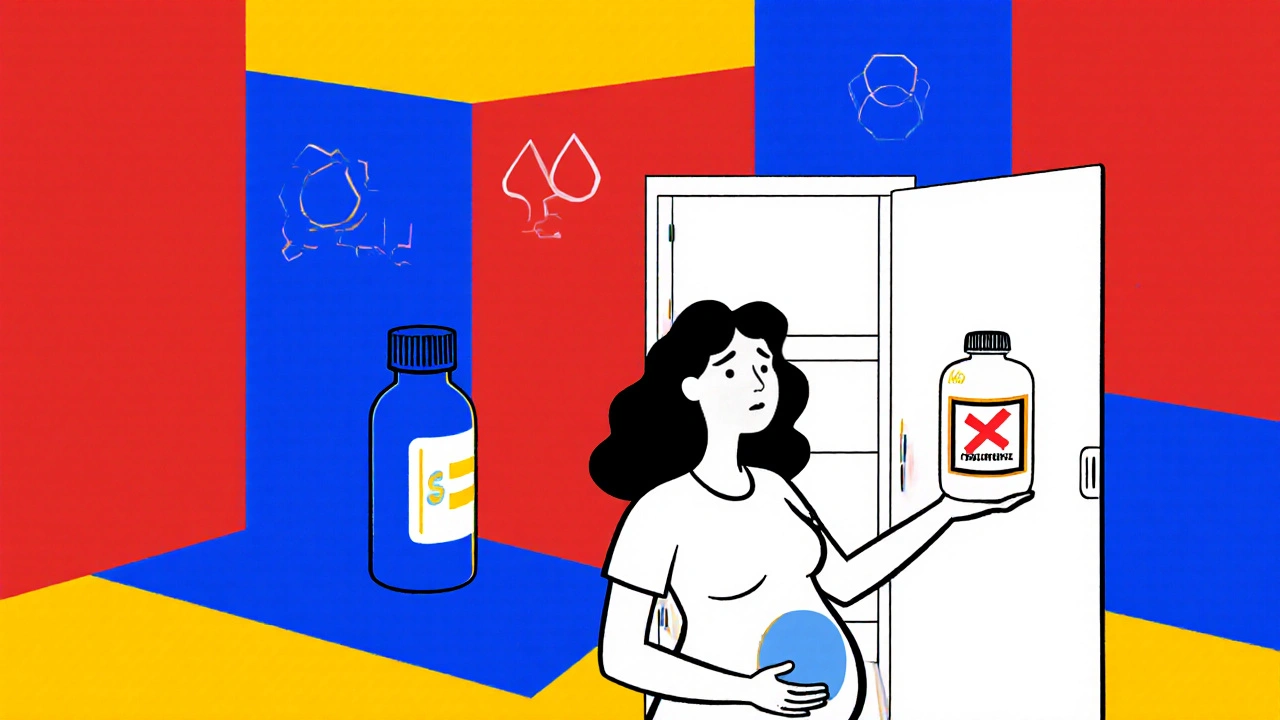Pregnancy: what to know about medicines and safety
Pregnancy changes how drugs affect your body. Some medicines are harmless, some can harm a baby, and some you can’t stop without risks. This page collects clear, practical advice so you can make safer choices and talk to your doctor with confidence.
Medications in pregnancy: what’s generally safe—and what to avoid
Safe basics: acetaminophen (paracetamol) is the usual go-to for pain or fever. Many prenatal vitamins with folic acid (400–800 mcg) and DHA are recommended. If you need longer-term meds—like levothyroxine for hypothyroidism or insulin for diabetes—keep taking them and follow lab checks; stopping can be worse than side effects.
Use caution or avoid: NSAIDs (ibuprofen, naproxen) especially after 20 weeks and near delivery can cause issues. ACE inhibitors and ARBs (blood pressure drugs) can harm the fetus. Certain antibiotics—like tetracyclines—or drugs such as isotretinoin and some antifungals (oral itraconazole) are not safe. Many antidepressants and other chronic meds need case-by-case review; don’t stop them suddenly.
Fertility drugs and fertility care: clomiphene (Clomid) often helps with ovulation but raises the chance of twins and needs monitoring. If you’re taking metformin, let your provider decide whether to continue during pregnancy. If you’re using assisted reproduction, keep all your specialists in the loop about meds and supplements.
Practical tips: buying meds and managing treatment while pregnant
Before you take anything, ask three quick questions: 1) Why do I need this? 2) Is it safe in pregnancy? 3) What are the alternatives? Keep a single list of every prescription, OTC, and supplement you take and bring it to appointments.
When ordering online, use licensed pharmacies. Look for clear contact info, require prescriptions for prescription drugs, and check certifications. Avoid sites that sell controlled or restricted medicines without a prescription. If a pill has a different name or price that seems too good, double-check the active ingredient and batch information.
Watch interactions: thyroid meds, blood thinners, and seizure drugs often need dose tweaks during pregnancy. Monitor blood pressure and blood sugar at home if your doctor asks—pregnancy can change doses fast. If a new rash, severe nausea, bleeding, or decreased fetal movement happens after starting a drug, contact your provider right away.
Legal and access issues: laws about abortion pills and other reproductive drugs vary by region. If you’re considering medication for termination or other reproductive care, talk to a trusted clinician or clinic about local rules and safe options.
Pregnancy is a time to be practical and proactive. Use trusted sources, keep communication open with your care team, and always confirm meds with a clinician before changing anything. If you want, search our site for specific drugs and quick guides tailored to pregnancy safety.

Spironolactone and Pregnancy: Risks, Alternatives, and What Doctors Recommend
Oct 28 2025 / MedicationsSpironolactone can cause serious birth defects in male fetuses. Learn the risks, safe alternatives, and what to do if you're pregnant or planning to conceive while on this medication.
VIEW MOREFrequently Asked Questions About Fenticonazole - Uses, Side Effects & Safety
Oct 20 2025 / MedicationsA comprehensive FAQ that explains what fenticonazole is, how it works, proper use, side effects, safety in pregnancy, and what to do if treatment fails.
VIEW MORE
Lamivudine-Zidovudine and Pregnancy: Key Insights You Need
Mar 9 2025 / MedicationsExploring how lamivudine-zidovudine impacts pregnancy, this article offers crucial insights about the combination and its effects on expecting mothers. It delves into safety, benefits, and potential risks related to the use of this medication during pregnancy. With practical tips and guidance, it's aimed at providing expecting mothers and healthcare providers with essential knowledge. Discussing relevant studies, it paints a well-rounded picture of what to expect and consider when using lamivudine-zidovudine during pregnancy.
VIEW MORE
Managing Pregnancy and Allergies: Safe Tips and Advice
Sep 5 2024 / Health and WellnessNavigating pregnancy while dealing with allergies can be challenging. This article explores safe ways to manage allergy symptoms during pregnancy. From understanding common triggers to choosing safe treatments, discover practical advice to keep both mother and baby healthy.
VIEW MORE